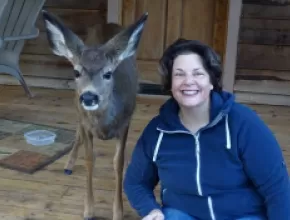By Anne Thornley-Brown
Summary: For job seekers, the Internet is both a blessing and a curse. While the web provides greater access to information about job openings, on-line tools make it difficult for event planners changing industries to obtain an interview. Supercharging your job search with traditional tools (i.e. information interviews, broadcast letters and briefs) will help you stand out from the crowd and create a favorable impression.
Event Planning Career Tips: Using Information interviews, Broadcast Letters and Briefs
In an era in which on-line tools and Internet portals dominate the job search landscape, it's tough to stand out from the crowd. Talented job seekers can find their resumes overlooked if their experience does not fit the posted job profile like a glove. For example, if event planners have experience in a different industry, they may find their applications rejected after a few screening questions. 3 traditional tools from the pre-Internet age can greatly assist:
• Event planners who are trying to change industries
• Professionals from other industries who are trying to break into event planning
These tools will help you rise above the crowd as relatively few job seekers use them anymore. I guarantee you, 90% of the people reading this blog will dismiss the content of this blog entry as outdated, old-fashioned and not relevant to the Internet age. That means that the 10% of job applicants who use these tools will reap the benefits.
Information Interviews
An information interview is a job interview in reverse. It's a chance to get answers to your questions about the industry and obtain career advice from an experienced event planner.
To set up an information interview, contact experienced job planners in your area. Ask them if they would be willing to allow you to interview them for 10 minutes to learn about the profession and obtain career advice. Interviews can take place in-person or through Skype or another on-line meeting tool.
Be organized. Prepare an interview guide with specific questions. Don't outwear your welcome. When you reach the 8 minute mark, thank the interviewer for their time and ask them if they know of:
• Companies that are looking for event planners
• Other event planners who may be willing to grant an interview
Request permission to use the individual's name when making these contacts. Always send a thank you note. It's a lost art. Sending a thank you note will definitely separate you from the rest of the pack.
Richard Bolles' What Color is Your Parachute provides instructions to help you prepare for and conduct effective information interviews.
Broadcast Letters
Broadcast letters are resume substitutes. They outline in point form your specific achievements that are directly relevant to the position.
Broadcast letters give job applicants an opportunity to highlight relevant skills and experience without providing details about aspects of their career history that are unrelated to the position.
Copy your broadcast letter on professional stationary. Always send unsolicited broadcast letters directly to the CEO in an envelope that matches your stationary. Mark them "Personal and Confidential", "Personal" or "Private and Confidential". If you are responding to a job posting, send the broadcast letter to the CEO with a copy to the person identified in the ad. If you are applying for a job through an on-line portal, paste your broadcast letter in the space provided for a cover letter.
If you send out 100 broadcast letters, you will usually generate about 5 - 7 interviews.
Executive Jobs Unlimited by Carl R. Boll is an in-depth instruction manual on how to create a winning broadcast letter. This thin, hard cover book has been out of print for some time now. You can still order new and used copies on Amazon, borrow it from the library, or find a copy at a used bookstore.
Briefs
A brief is a bound mini-portfolio consisting of:
• A title page
• Your broadcast letter
• A resume customized for the position with specific and quantified examples of your achievements for each of the key position requirements
• Client testimonial letters
• References from previous jobs
• Press clippings
• Relevant blog postings including links
• Work samples including photos
If you're just launching your event planning career or you want to transition into event planning from another profession, it's appropriate to use testimonials and samples from school projects, campus events, internships, volunteer work, social committees, or sideline businesses.
There are 2 ways to use your brief.
1. Drop it off or send it in if you are asked for a resume after sending your broadcast letter.
2. Bring it to the interview and present it when the interviewer requests your resume.
For more detailed instructions on how to create a brief, get a copy of Napoleon Hill's classic Think and Grow Rich.
Adding these 3 traditional tools to your job search arsenal will ensure that you don't get lost in the sea of applicants. Your application will get more exposure, create a positive impact and increase the likelihood that you will obtain an interview and receive serious consideration for employment.
This piece was originally posted at www.eventcoup.com.





